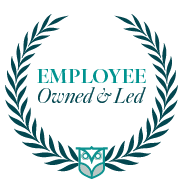
Don’t Put Your Ideal Future on Hold.
You shouldn’t have to wait to talk to your advisor.
Let's talk now.
You shouldn’t have to wait to talk to your advisor.
Let's talk now.When it comes to managing money, we all need someone we can trust – a guide who understands our needs and desires, thinks objectively, and keeps our best interests at heart. At Savant, our advisors combine Wall Street knowledge with Main Street values to help you pursue your ideal future. And, since we’re majority-owned by our employees, what’s important to you is of the utmost importance to us. When you work with Savant, we believe you’ll have peace of mind knowing we’re always in your corner.

Retiring can be tough when you don’t know what you don’t know! Luckily, Savant can help make it simple. In addition to our Wise Counsel, we help you learn the retirement ropes when you subscribe to our Savant Insights email newsletter. Sign up and get financial news you can really use – delivered directly to your inbox.

Your goals are important, and when it’s time to partner with a financial advisor, you want a firm with the resources to handle even the most complex financial situations with wisdom and compassion. Here are five reasons we believe Savant should be your first call.

Many people spend more time planning for a vacation than their retirement. With a clear vision and a thoughtful, detailed plan, the next phase of your life can be successful and fulfilling. What does the next chapter hold for you?
Learn More
Few executives have the time or energy to effectively manage the intricacies of their own compensation package and personal wealth.
Learn More
After spending many years sprinting on the corporate treadmill, many professionals and executives are searching for a more balanced alternative. Are you ready to start working and living on your own terms?
Learn More
It’s not about how much you make; it’s about how much you keep after taxes. That’s why we believe that tax planning is a critical component of wealth management.
Learn More
Whether you’re looking to transfer ownership to a family member, reward key employees with ownership, or sell the company outright, monetizing your business requires specific expertise.
Learn More
If you’re in the middle of a job change, you may be wondering what to do with the money you’ve invested in your 401(k).
Learn More
Whether you’re contemplating divorce, working through the process, or recently received your decree, chances are your financial situation is transitioning.
Learn More
Even with the support of family and friends, transitioning from being a part of a couple to living on your own comes with significant emotional and financial challenges.
Learn MoreSchedule a No-Obligation Introductory Call
Schedule a Call